people
mentors, collaborators and supervised students

University of Zürich
Postdoc Supervisor
Professor Theofanis Karayannis is an Associate Professor of Neuroscience and Co-Director of the Brain Research Institute at the University of Zurich. He earned his Pharmacy degree from the University of Athens, Greece, and completed his D.Phil. at the University of Oxford, UK, focusing on cortical interneurons. During his postdoctoral fellowship at New York University Medical Center, USA, he investigated the synaptic integration of interneurons in developing cortical circuits and neurodevelopmental disorders. His research centers on understanding how environmental factors influence the assembly and plasticity of neuronal circuits, particularly those involved in sensory information processing. Professor Karayannis has been recognized with a NARSAD award and an ERC Starting Grant for his contributions to neuroscience.

University of Washington
Ph.D. Supervisor
Dr. Inbal Israely is an Assistant Professor in the Department of Neurobiology & Biophysics at the University of Washington. She earned her Bachelor of Science degree in Molecular Biology from the University of California. Her research focuses on understanding the cellular mechanisms underlying structural plasticity in neurons, particularly at the level of single neurons and dendritic spines. Dr. Israely has contributed to the field through her work on synaptic function and cognitive processes, including studies on the deletion of neuron-specific proteins leading to cognitive and synaptic dysfunction.
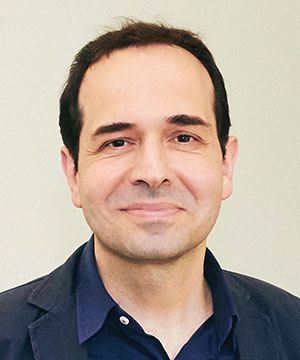
Sabancı University
M.S. Supervisor
Professor Müjdat Çetin is a distinguished figure in the fields of data science and electrical and computer engineering. He currently serves as the Robin and Tim Wentworth Director of the Goergen Institute for Data Science at the University of Rochester, where he is also a Professor in the Department of Electrical and Computer Engineering and the Department of Computer Science.
Dr. Çetin earned his Ph.D. in Electrical Engineering from Boston University in 2001. Following his doctorate, he held positions as a Research Scientist at the Massachusetts Institute of Technology (MIT) and as a faculty member at Sabancı University in Istanbul, Türkiye. His research encompasses computational sensing and imaging, probabilistic methods for image and video analysis, and machine learning for brain-computer interfaces.
Throughout his career, Professor Çetin has received numerous accolades, including the IEEE Signal Processing Society Best Paper Award and the Turkish Academy of Sciences Distinguished Young Scientist Award. He is a Fellow of the IEEE and has held editorial roles in several prestigious journals, such as the IEEE Transactions on Image Processing and the SIAM Journal on Imaging Sciences.
In addition to his academic and research contributions, Dr. Çetin serves as the Director of the New York State Center of Excellence in Data Science, further solidifying his leadership in advancing data science and artificial intelligence.
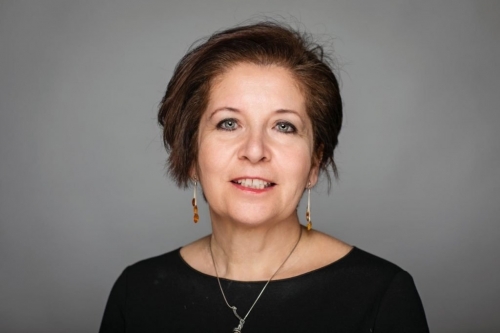
Sabancı University
M.S. Supervisor
Professor Aytül Erçil is a distinguished Turkish entrepreneur and academic, renowned for her contributions to computer vision and pattern recognition. She earned dual bachelor’s degrees in Electrical Engineering and Mathematics from Boğaziçi University in 1979, followed by a master’s degree in 1980 and a Ph.D. in Applied Mathematics in 1983 from Brown University.
Following her doctorate, Professor Erçil served as a senior research scientist at General Motors Research Laboratories. Upon returning to Turkey, she joined Boğaziçi University in 1988, where she established the BUPAM Pattern Analysis and Machine Vision Laboratory. In 2001, she transitioned to Sabancı University, founding the VPALAB Computer Vision and Pattern Analysis Laboratory.
In addition to her academic roles, Professor Erçil is a successful entrepreneur. She founded Vistek A.Ş., a company specializing in machine vision products, which was later acquired by ISRA VISION AG in 2013. In 2014, she co-founded Vispera A.Ş., focusing on image processing and machine learning solutions for retail, now operating in over 50 countries.
Throughout her career, Professor Erçil has received numerous accolades, including the ‘Turkey’s Female Entrepreneur’ Award in 2013 and the Selçuk Yaşar ‘Entrepreneurship, Innovation’ Award in 2019. She is also a member of various advisory boards, contributing significantly to the advancement of technology and innovation.
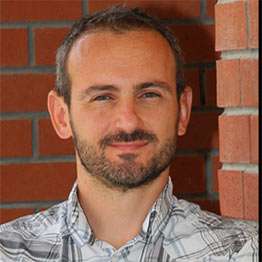
İzmir Demecracy University
Collaborator
Professor Devrim Ünay is a distinguished academic in electrical and electronics engineering, currently serving as a Professor at İzmir Democracy University in Türkiye. He earned his B.S. degree in Electrical and Electronics Engineering and an M.S. in Biomedical Engineering from Boğaziçi University, followed by a Ph.D. in Applied Sciences from the Université catholique de Louvain in 2005.
Throughout his career, Professor Ünay has held various academic positions, including roles at Bahçeşehir University and İzmir Democracy University. His research interests encompass medical image analysis, machine learning, and signal processing, with a focus on developing computational methods for biomedical applications.
In recognition of his contributions to the field, Professor Ünay has been appointed as an Associate Editor for the Journal of Advances in Signal Processing and serves as a member of the IEEE Signal Processing Society’s Bio Imaging and Signal Processing Technical Committee for the term 2021-2023. His scholarly work is well-cited, reflecting his impact on the scientific community.
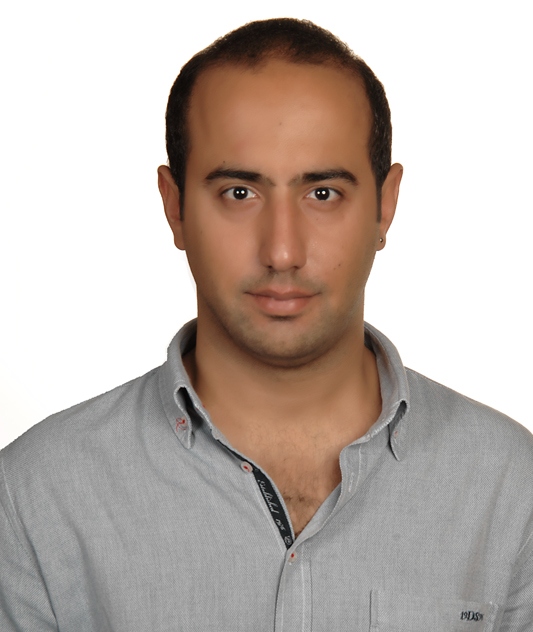
ETH Zürich
Collaborator
Dr. Ertunc Erdil is a researcher specializing in machine learning, computer vision, and medical image analysis. He earned his B.S. in Mathematics and Computer Science from Ege University in 2009, followed by an M.S. in Biomedical Engineering from Bahçeşehir University in 2011. He completed his Ph.D. at Sabancı University in 2017, focusing on probabilistic and machine learning-based methods for automatic dendritic spine segmentation, classification, and tracking in two-photon microscopy images.
Dr. Erdil has held positions as a Research Assistant at Bahçeşehir University and Sabancı University. Since 2019, he has been a Senior Researcher at ETH Zürich. His research interests include statistical machine learning, deep learning, computer vision, and biomedical information processing.
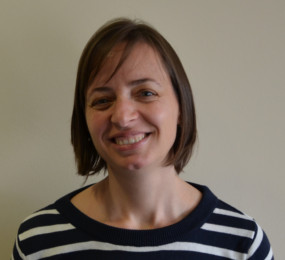
Bahçeşehir University
Collaborator
Professor Lavdie Rada received her B.Sc. degree in Mathematics from the Natural Sciences Faculty in Tirana, Albania, her M.Sc. degree in Applied Mathematics from the Polytechnic University of Tirana, Albania, and her Ph.D. in Fast Iterative Methods for Variational Models of Image Segmentation from the Department of Mathematical Sciences, University of Liverpool, UK. Since 2014, she has been a Lecturer with the Faculty of Engineering and Natural Sciences, Bahçeşehir University, Istanbul.
Her research interests include image processing and analysis, numerical analysis and scientific computing, segmentation and reconstruction in images, biomedical imaging and information processing, computer vision, inverse problems and optimization, computations of partial differential equations and stochastic differential equations, and applied mathematics.

Leibniz Institute for Neurobiology in Magdeburg
Collaborator
Dr. Alessio Attardo is a neurobiologist specializing in the cellular mechanisms underlying learning and memory. He earned his undergraduate degree in Biology from the University of Palermo, Italy, and completed his Ph.D. at the Max Planck Institute of Molecular Cell Biology and Genetics in Dresden, Germany, focusing on cortical development.
Following his doctoral studies, Dr. Attardo conducted postdoctoral research at Stanford University, where he developed chronic deep-brain optical imaging techniques to study long-term plasticity of pyramidal neurons in the hippocampus of live mice.
In 2015, he established his own research group at the Max Planck Institute for Psychiatry in Munich, Germany, concentrating on structural plasticity in hippocampal neurons as the cellular foundation of memory and the effects of stress on neuronal representations.
Since January 2022, Dr. Attardo has been leading the “Hippocampal Plasticity and Episodic Memory” group within the Department of Cellular Neuroscience at the Leibniz Institute for Neurobiology in Magdeburg, Germany.
His research employs advanced imaging techniques to investigate how networks of neurons in the brain acquire and recall memories, aiming to elucidate the cellular events in the hippocampus underlying learning and recall.

Leibniz Institute for Neurobiology in Magdeburg
Collaborator
Write your biography here. Tell the world about yourself. Link to your favorite subreddit. You can put a picture in, too. The code is already in, just name your picture prof_pic.jpg and put it in the img/ folder.
Put your address / P.O. box / other info right below your picture. You can also disable any these elements by editing profile property of the YAML header of your _pages/about.md. Edit _bibliography/papers.bib and Jekyll will render your publications page automatically.
Link to your social media connections, too. This theme is set up to use Font Awesome icons and Academicons, like the ones below. Add your Facebook, Twitter, LinkedIn, Google Scholar, or just disable all of them.

UZH
Collaborator
Professor Christopher Pryce is a distinguished neuroscientist specializing in the neurobiology of stress-related emotional pathologies. He currently serves as a Professor at the University of Zurich’s Department of Adult Psychiatry and Psychotherapy, where he coordinates the Center for Psychiatric Research and leads the Preclinical Laboratory for Translational Research into Affective Disorders (PLATRAD).
Dr. Pryce’s research focuses on understanding the neural circuits responsible for aversion and reward processing, particularly in the context of chronic stress exposure. His work aims to identify and validate pharmacological agents that can restore neural circuit function and emotional behavior, with the goal of developing effective treatments for emotional symptoms in human patients.
Throughout his career, Dr. Pryce has contributed significantly to the field of neuroscience, with numerous publications in the areas of neurobiology and psychiatry. His research has been recognized and cited extensively, reflecting his impact on the scientific community.
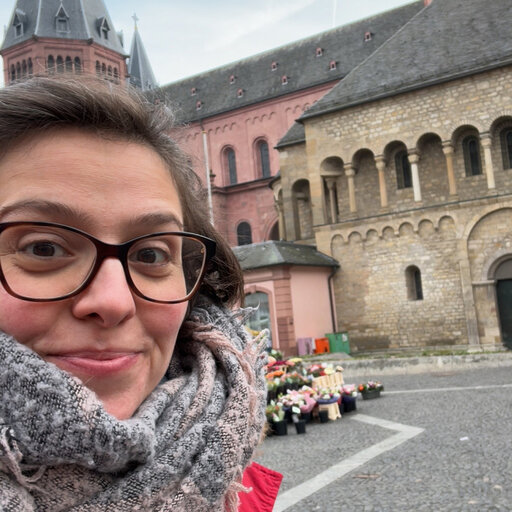
University of Mainz
Collaborator
Dr. Giulia Poggi is a neuroscientist specializing in the neurobiology of psychiatric and affective disorders. She earned her Ph.D. in Neuroscience from the Max Planck Institute of Experimental Medicine in Göttingen, Germany, where she focused on neurogenetics.
Following her doctoral studies, Dr. Poggi held postdoctoral positions at the Max Planck Institute of Experimental Medicine and the Friedrich Miescher Institute for Biomedical Research in Basel, Switzerland. In 2019, she joined the University of Zurich’s Department of Psychiatry, Psychotherapy, and Psychosomatics, where she continues her research on brain circuits involved in helplessness and apathy, as well as the effects of chronic social stress on oligodendrocyte and myelin alterations.
Dr. Poggi has contributed to numerous publications in the field of neuroscience, with a focus on the pathophysiology of stress-related psychiatric illnesses and the role of oligodendrocytes and myelination in emotional processing.